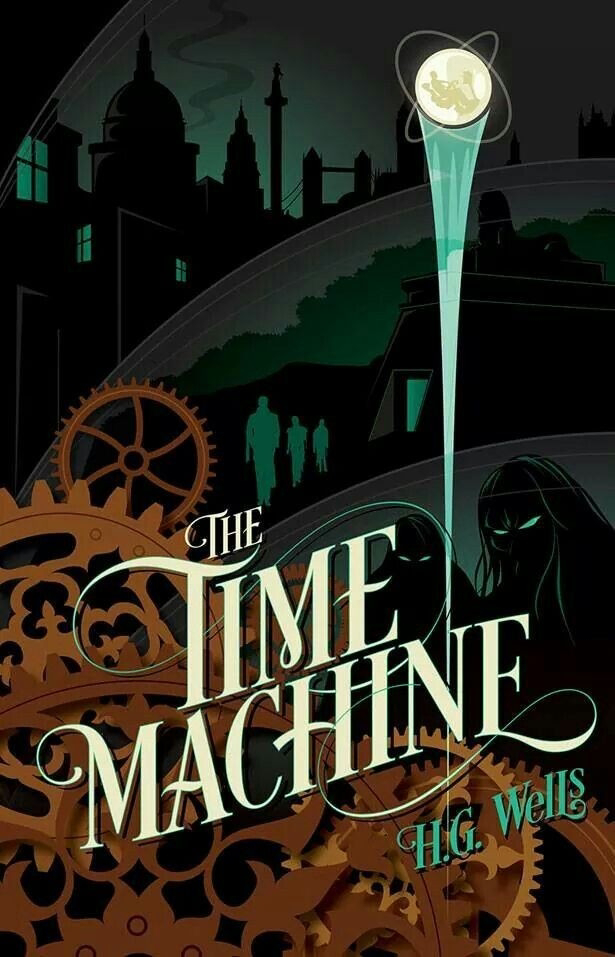**Introduction:**
- "The Time Machine" is a classic science fiction novel by H.G. Wells, published in 1895.
- The novel explores several thought-provoking themes and messages, making it a significant work in the genre.
**1. The Inevitability of Change:**
- One of the central messages of the novel is the inevitability of change and the passage of time.
- The Time Traveller invents a machine that allows him to travel through time, highlighting how time is a force that cannot be stopped or controlled.
- The world he encounters in the distant future has undergone profound transformations, serving as a reminder that everything is subject to change.
**2. The Fragility of Civilization:**
- "The Time Machine" emphasizes the fragile nature of human civilization.
- The Eloi and Morlocks represent two potential outcomes of human society: one that has achieved technological advancement but has become weak and decadent (Eloi), and another that has regressed to brutality (Morlocks).
- This portrayal serves as a cautionary tale, warning that even the most advanced civilizations can crumble if not nurtured and protected.
**3. Social and Economic Inequality:**
- The novel addresses the theme of social and economic inequality through the stark contrast between the Eloi and the Morlocks.
- The Eloi live a life of leisure and privilege, while the Morlocks perform all the labor and live in harsh conditions.
- H.G. Wells critiques the class divide in Victorian society and suggests that such inequalities could persist or worsen in the future.
**4. The Dark Side of Progress:**
- "The Time Machine" raises questions about the potential negative consequences of unchecked technological progress.
- The Eloi's comfortable existence is made possible by advanced technology, but it has also made them complacent and vulnerable.
- The Morlocks, on the other hand, are a product of this progress, having evolved in response to the changing environment. They represent the unintended consequences of scientific and industrial advancement.
**5. The Duality of Human Nature:**
- The novel explores the duality of human nature, as seen in the contrasting behavior of the Eloi and the Morlocks.
- While the Eloi appear gentle and docile, they are ultimately weak and passive, unable to defend themselves.
- The Morlocks, though brutal and predatory, are still descendants of humanity, highlighting the potential for darkness within us all.
**6. Survival and Adaptation:**
- Survival and adaptation are key themes in "The Time Machine."
- The Time Traveller's struggle to survive in the future world becomes a central narrative as he faces the challenges posed by the Eloi and Morlocks.
- His ingenuity and resourcefulness are put to the test, highlighting the human drive to adapt and overcome adversity.
**7. Reflection on Progress and Regression:**
- The novel invites readers to reflect on the nature of progress and regression.
- The Eloi's society, despite its technological advancements, has regressed morally and intellectually.
- The Morlocks, while adapted to their environment, have regressed in terms of empathy and compassion.
- Wells prompts readers to consider what constitutes true progress in society.
**8. Time as a Metaphor:**
- Time serves as a metaphor throughout the novel, representing change, decay, and the unknown.
- The Time Traveller's journey through time mirrors humanity's journey through history, with its uncertainties and surprises.
- The novel encourages readers to contemplate the mysteries of time and its impact on individuals and societies.
**Conclusion:**
H.G. Wells' "The Time Machine" is a rich and layered work of science fiction that conveys several important messages and themes. It explores the inevitability of change, the fragility of civilization, social and economic inequality, the dark side of progress, the duality of human nature, survival, and adaptation, as well as reflections on progress and regression. Through the narrative of time travel, Wells prompts readers to ponder the complexities of human existence and the ever-shifting nature of the world around us.






No comments:
Post a Comment